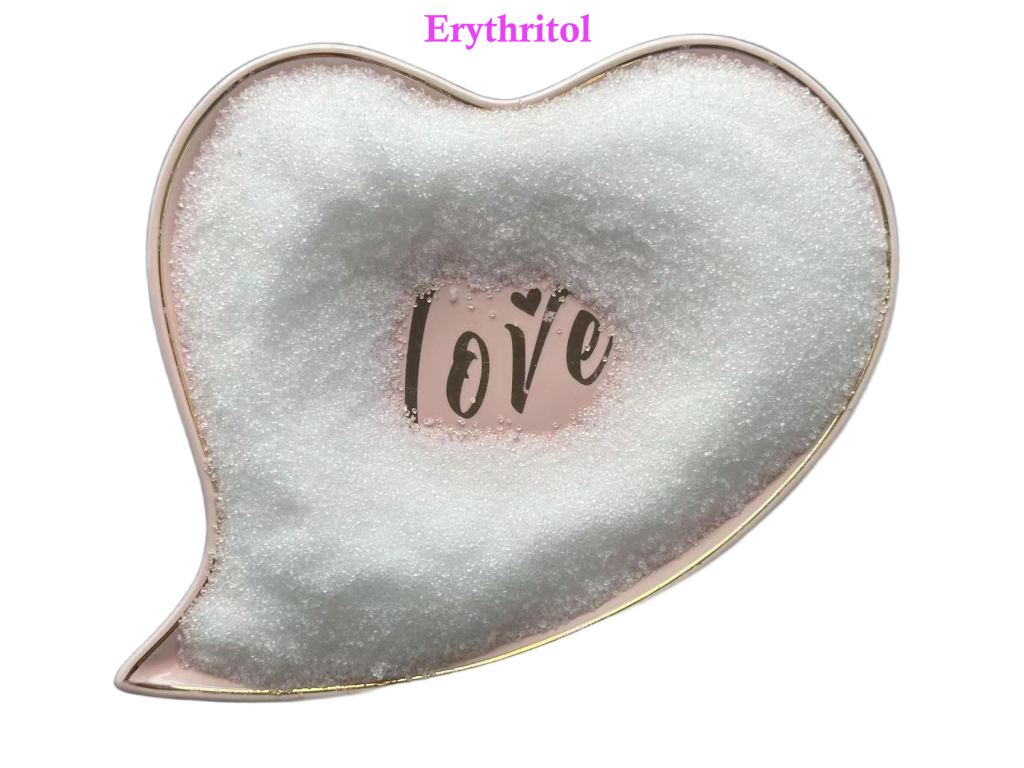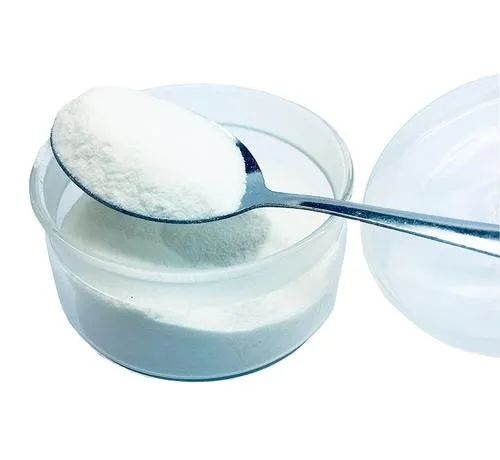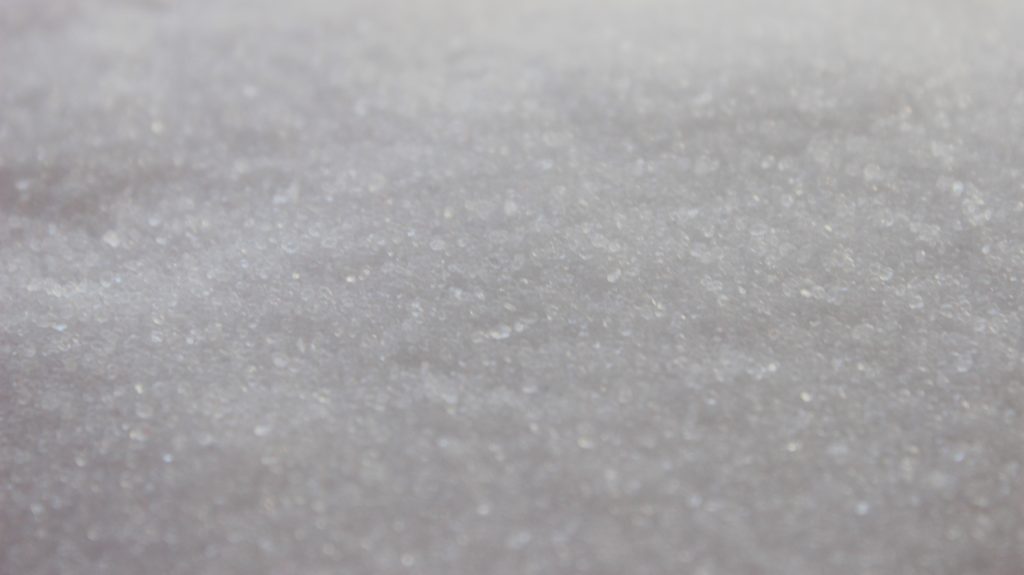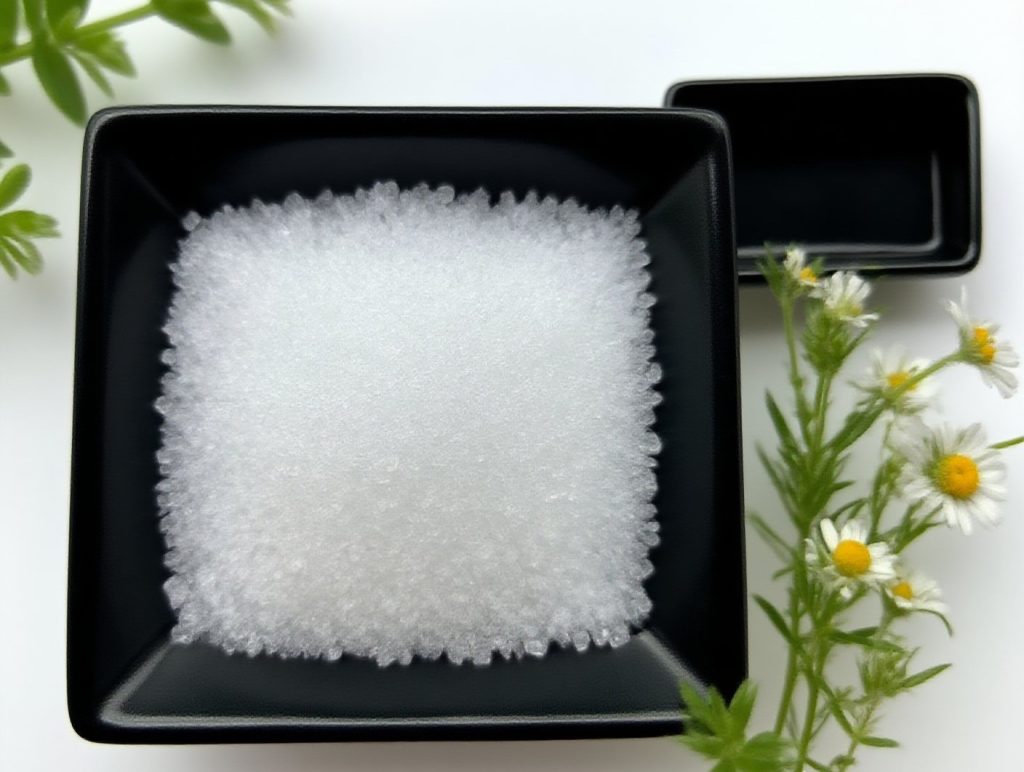Definition

Erythritol sugar: a sweetener that is a four carbon sugar alcohol with the molecular formula C4H10O4. Erythritol is widely present in nature, such as in fungi such as mushrooms and lichens, fruits such as melons, grapes, and pears. It can also be detected in small amounts in animal eye crystals, plasma, fetal fluid, semen, and urine. It is also present in fermented foods such as wine, beer, soy sauce, and Japanese sake.

Erythritol is generally fermented from glucose and is a white crystalline powder with a refreshing sweet taste. It can replace sucrose and is not easily absorbed. It is stable at high temperatures and over a wide pH range. When dissolved in the mouth, it has a mild cool sensation and is suitable for a variety of foods.
Erythrose: a four carbon monosaccharide with the molecular formula C4H8O4. Free erythritol has not yet been found in nature. Common erythritol sugars are D-erythritol and L-erythritol, both of which are syrup like liquids with a sweet taste and fermented by yeast. D-erythritol is generally produced by oxidation of D-arabinose calcium; L-erythritol can be synthesized by oxidation of calcium L-arabinose. Erythritol is generally only used for analytical research and has limited industrial applications.

Uses of Erythritol sugar
It is a kind of Zero calorie sweetener.
A filler sweetener that can be mixed with low calorie sweeteners (e.g. acesulfame potassium and aspartame) or other polyols (e.g. sorbitol and xylitol).
Sweet and clean taste with no aftertaste.
Possible use in a variety of zero-calorie, low-calorie, low-fat and sugar-free foods and beverages, from candies to yogurts.
Beneficial for people suffering from diabetes because it does not increase insulin or blood glucose levels.
It does not contribute to the formation of cavities.
production
Erythritol is manufactured by using enzymatic hydrolysis of the starch from corn to generate glucose. Glucose is then fermented with yeast or another fungus to produce erythritol.
How to avoid the dangers of erythritol sugar
Here’s where it can get tricky. You could be eating foods that contain erythritol and not even know it.
Erythritol falls into the category of Generally Recognized as Safe (GRAS) by the U.S. Food and Drug Administration (FDA). That means long-term safety studies of erythritol aren’t required currently. It also means food companies don’t have to list erythritol on their nutrition labels.
The FDA considers erythritol sugar safe because it’s a naturally occurring compound, Dr. Hazen explains. But the problem is that the quantities it’s used for in foods are much, much higher than what is natural and known to be safe for your body.
The difference between Erythritol and Erythrose
First, erythritol is widely used in many foods and beverages due to its high safety performance.
Second, erythrose and erythritol have similar names, but there are significant differences. Erythritol exists naturally and does not require artificial cultivation, but with the growth of market demand, natural erythritol can no longer meet market supply. Therefore, the erythritol currently used in the food industry is mostly extracted manually to reduce costs and meet consumer demand.
Third, artificially extracted erythritol not only has a low cost, but also helps maintain physical health. It has a unique taste and is loved by consumers. It provides special groups such as diabetes patients with the opportunity to taste the taste of sugar.
In contrast, erythrose does not exist in nature and is mainly obtained through artificial synthesis. The molecular structure of erythrose is similar to erythritol, but it does not contain alcohol groups, so it is classified as a sugar. As a monosaccharide, it does not have nutritional or practical value, and is therefore not commonly found in daily life.
Finally, there are differences in structure and application between erythrose and erythritol. Both are safe food additives with low calorie and sweetener properties, which can be used with confidence.
Our Hangzhou Health Sweet Biotech Corporation is a professional Healthy sweeteners supplier. Erythritol and Allulose is our strong product. Hope customers contact us at any time to discuss about Erythritol and Allulose business.


